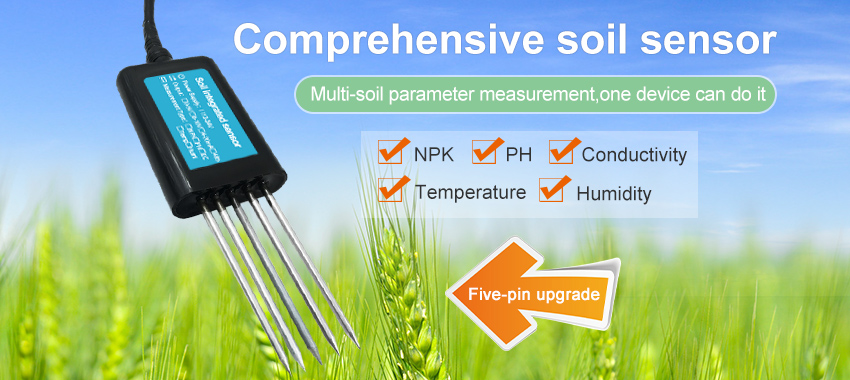Overview

Using soil sensor for agriculture, soil parameters can be easily detected. Soil can monitor moisture, fertilizer, temperature and humidity for crop growth. It also plays an important role in improving the structure and physicochemical properties of soil aggregates. As well as water supply, water retention, temperature stabilization, ventilation.
Monitoring of soil moisture-soil sensor for agriculture
Low soil moisture will directly or indirectly affect the decline of photosynthesis. Is the main limiting factor of photosynthesis.
Lack of water can also kill crops. So when there’s too little water, the roots of plants can’t absorb enough of it. And transpiration causes plants to lose a lot of water. So the plants won’t wilt. The roots are pulled off, which can lead to plant death in severe cases.
To monitor soil moisture, a soil moisture sensor can be used to determine whether to irrigate stop irrigation based on the data. To ensure that the soil moisture is suitable for crop growth.

Monitoring of soil temperature-soil sensor for agriculture
A suitable soil temperature is conducive to the growth of plants, and a temperature that is too low or too high is not conducive to the growth of plants. Crop seeds must germinate within a suitable soil temperature range. Within a certain temperature range, the higher the soil temperature, the faster the growth and development of crops, and the growth of different plants has different requirements for temperature.
We use soil sensors for agricultural to monitor soil temperatures, which can keep soil temperatures within the range suitable for crop growth. To ensure that crops increase production and income.